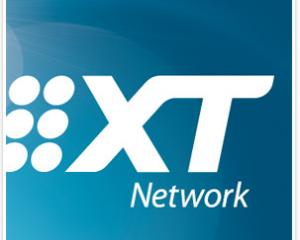The recent two-and-a-half-day, multimillion-dollar meltdown of Telecom's XT mobile service is expected to have far-reaching implications - more so than just its more than $5 million compensation package announced in Dunedin last week - and regulation and competition remain key challenges for the company.
Telecom is the first of the major listed companies to begin the month-long reporting season, delivering its second quarter result tomorrow.
For the quarter to December 2008, Telecom booked an after-tax profit of $105 million, but that was before abnormal one-off writedowns of $83 million, mainly for mobile equipment and a goodwill writeoff, which dragged the profit down to $22 million.
For the quarter to December 2009, broking firm Craigs Investment Partners is predicting a 39.7% fall to $63 million while Forsyth Barr has predicted a 19% decline to $85 million.
Craigs predicts a full-year after-tax profit of $409 million, while Forsyth Barr predictions are in the $400 million-$440 million range.
Craigs broker Peter McIntyre said greater costs associated with depreciation and amortisation, plus increased interest payments on debts, such as funding the XT technology and its marketing roll-out, would all impact on Telecom's bottom-line.
"The XT issue will take $5 million straight off the bottom line.
"Telecom is no longer a useful barometer for the market in our view; structural rather than cyclical issues related to regulation, technology and competition continue to erode its operating base," Mr McIntyre said.
Forsyth Barr broker Suzanne Kinnaird said she expected New Zealand revenue to be down 4.2% and Australian revenues down 13% (which translated to 7% down in New Zealand dollar terms), mainly due to declines in calling and resale.
"[In New Zealand] we expect continuing declines in fixed voice revenues to be partly offset by growth in broadband, internet and mobile, but the overall rate of decline to remain similar to the last two quarters," Ms Kinnaird said.
Both brokerages maintain a hold recommendation on the stock, with Forsyth Barr expecting negative news from Telecom in the months ahead, while Craigs noted there was a risk the Government's $1.5 billion ultra-fast broadband initiative, in which private sector companies have been invited to participate, would affect Telecom's's short-term share price.
Ms Kinnaird said the recent problems associated with the XT service "would probably slow growth over the next few quarters", while Mr McIntyre said the "medium-term collateral damage" could be more costly if customers saw more XT problems.
"If [XT] continues to give problems, the cost could go into the tens of millions," Mr McIntyre said.
Ms Kinnaird forecast Telecom would not return to profit growth until the full-year 2012, with next year affected by changes to its statutory telecommunication service obligation, involving the maintenance of urban and rural services, and probable reductions in mobile termination rates.
Mr McIntyre forecast about 15% growth for Telecom over the next two years, beginning in the second half of 2010, underpinned by tax and equipment writedowns and goodwill, with after-tax profit rising from $409 million to $462 million for the full-year 2012.






